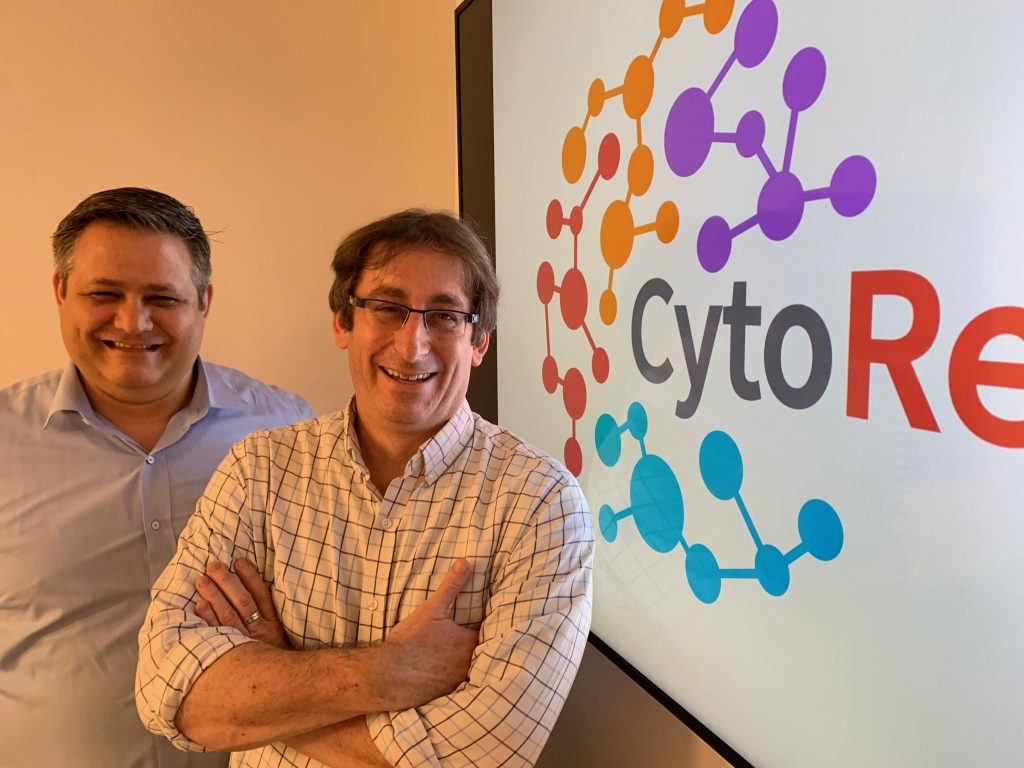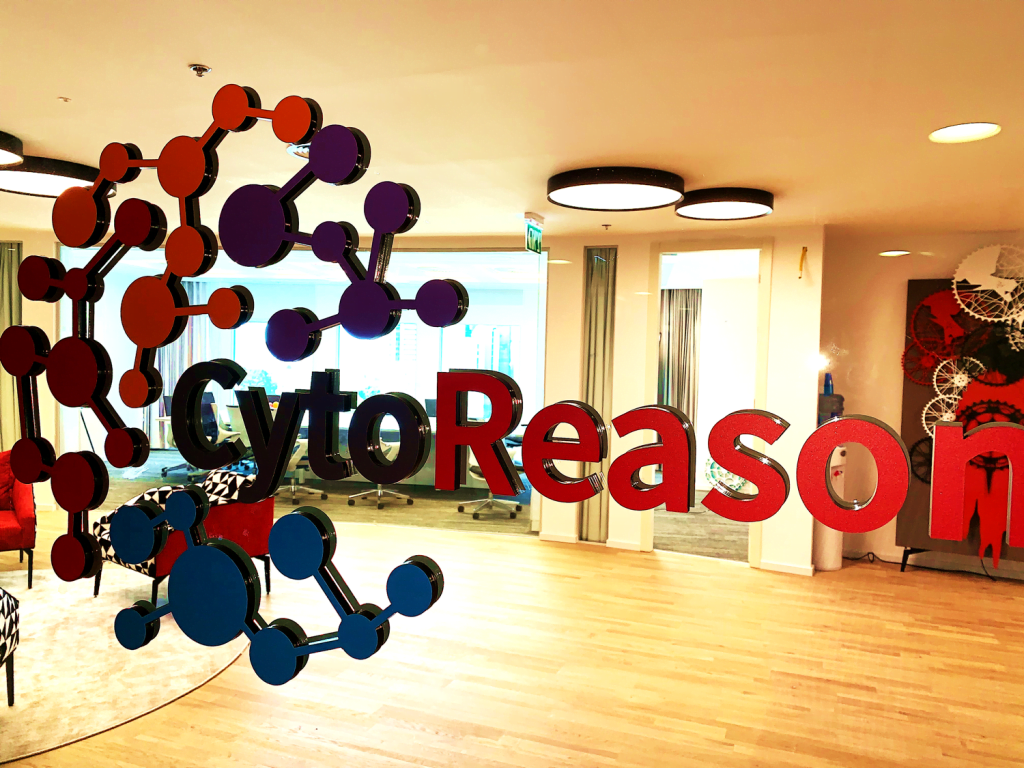The pharmaceutical industry has amassed a huge amount of data over time and often, it’s difficult to manage. With so much data to analyze in a short time, and companies under pressure to do it quickly, they often seek the help of innovative technologies, like AI to leverage the influx of insights from publications, medical records, patient data, conferences, clinical trials, and more.
Organizing, interpreting, and using all the information to generate actionable insights continues to be a challenge, and many pharma giants, like Pfizer, a turning to startups to close the gap.
Pfizer recently announced it would extend its current collaboration agreement with Israeli biotech firm CytoReason, a developer using AI to create computational disease models for drug discovery and development.
CytoReason first announced its cooperation with Pfizer in early 2019 to leverage the Israeli company’s cell-centered models of the immune system and diseases in order to develop innovative drugs. Since the start of the collaboration, CytoREason said it has provided Pfizer with “multiple insights in a number of R&D programs across over 20 diseases.”

“The extension of our collaboration with CytoReason will build upon our existing data science capabilities, and further enhance our ability to make data-driven decisions across our portfolio,” said Mikael Dolsten, MD, PhD, Chief Scientific Officer and President, Worldwide Research, Development and Medical of Pfizer.
“It’s exciting to see our technology in the hands of such a stellar group of scientists,” said David Harel, CytoReason’s CEO and Co-founder. “Our work with the Pfizer team has demonstrated how our computational models can potentially match the right treatment to the right patient groups, across multiple therapeutic areas. Through this collaboration and our growing customer base worldwide, we aim to establish our platform as the gold standard for drug discovery, development, and portfolio management.”
Key partnerships
Founded in 2016 by scientists and researchers from the Technion and Stanford, CytoReason built a machine learning platform that can quantify a person’s immune system at a cellular level in order to better understand disease responses and treatments, and facilitate the discovery and development of more effective drugs. The simulations are applicable to cancer immunotherapy, and autoimmune, neurodegenerative, and infectious disease research.
The company has running collaborations with three top, global pharmaceutical companies including British multinational GlaxoSmithKline (gsk) and Pfizer and with the Parker Institute for Cancer Immunotherapy, a leading US research institution that coordinates cancer research efforts between scientists, clinicians, and industry partners.

“Essentially, we are aggregating human data on a molecular level,” CytoReason co-founder and CEO David Harel told NoCamels when we visited the company’s offices on the 16th floor in one of Tel Aviv’s Azrieli towers before the pandemic hit. “If you look at the human body, everyone is made up of the same organs. And every organ is made up of the same tissue. And every tissue is made up of the same cells, which are then made up of the same proteins, which are influenced by genes. Of course, the types of cells and the proportions differ and change, but in principle, it’s all the same. What we are doing at CytoReason is trying to build a computational model of human tissue, to then support clinical trials of new pharmaceuticals. That is huge!” he added.
The CytoReason team conducted a study at the Technion where it tried to predict how patients would respond to REMICADE (infliximab), a drug commonly used for the treatment of IBD. The company’s tech showed to have very high accuracy in its predictions – a proof of concept that later opened doors to multinationals like Pfizer.
“We called Pfizer and gsk, and immediately got invited for presentations. We demonstrated our technology, did more proofs of concept, and then were asked to partner up with both of the organizations on their drug development,” Harel said.
Sign up for our free weekly newsletter
SubscribeWhen the partnership first launched, Harel said he hoped the collaboration would “further strengthen our models in our core therapeutic areas and that it would “help make our model unparalleled in its accuracy for assets across the pipeline.”
“CytoReason’s model brings together thousands of samples on a cell-protein-gene level, allowing for fast and accurate insights,” he added.

Last May, CytoReason teamed up with Swiss biopharmaceutical company Ferring Pharmaceuticals to establish new treatment options for patients with inflammatory bowel disease (IBD). Based in Saint-Prex, Ferring specializes in areas such as reproductive health, maternal health, gastroenterology, and urology.
IBD is a chronic disease that affects the digestive system and includes Crohn’s disease and ulcerative colitis. Symptoms include abdominal pain, rectal bleeding, fatigue, and weight loss. Bouts can last for days, weeks, or sometimes months at a time.
CytoReason said in a statement at the time that it intends to present insights on the top drug targets to provide new therapeutic options for IBD patients.
In October, the company announced a collaboration with German multinational science and technology company, Merck KGaA, Darmstadt, Germany, to profile one of its leading immuno-oncology drugs. The company said it would analyze data from hundreds of patients from Phase 1 and 2 studies to identify relevant patient populations, as well as prioritize tumor types that the drug would be effective to treat.
In September, CytoReason announced it had entered the Japanese market by partnering with Summit Pharmaceuticals International (SPI) to have its AI technology be utilized by one of the country’s top pharmaceutical companies.
Harel told NoCamels the move into Japan was such a big opportunity for his firm. “When we think about markets we are not thinking about patients – rather pharmaceutical companies. We’re familiar with US pharmaceuticals e.g. Pfizer or GlaxoSmithKline in Europe. However, we’re less familiar with Japanese pharmaceutical firms but their science and technology development is among the most important in the world. It is a big and strong industry.”
Additional reporting by Klara Strube
Related posts

Israeli Medical Technologies That Could Change The World

Harnessing Our Own Bodies For Side Effect-Free Weight Loss

Missing Protein Could Unlock Treatment For Aggressive Lung Cancer




Facebook comments